
News • Determining aggressiveness
New discovery improves prostate cancer prognosis
Researchers in Sweden have now discovered a faster and easier way to determine who has an aggressive form of prostate cancer, and who has not.

Researchers in Sweden have now discovered a faster and easier way to determine who has an aggressive form of prostate cancer, and who has not.

A different way of treating people with prostate cancer will be investigated by researchers at the University of Leeds in a new clinical trial funded by Yorkshire Cancer Research.
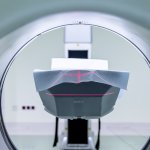
Synthetic correlated diffusion makes cancerous tissue glow in medical images could help doctors more accurately detect and track the progression of cancer over time.

UK researchers have found that a new type of ultrasound scan can diagnose most prostate cancer cases with good accuracy in a clinical trial involving 370 men.

Mathematical models used as patient surrogates could help clinicians select the best cancer treatment before going to the patient’s bedside.

A new risk calculator could reduce the number of unnecessary and invasive biopsies for prostate cancer.

The combination of a novel blood test and magnetic resonance imaging can reduce overdiagnosis of low-risk cancers as well as societal costs in prostate cancer screening, according to a new study.

Faulty versions of the BRCA1 and BRCA2 genes are well known to increase the risk of breast and ovarian cancer. Now, they have been linked to several other cancers, including those that affect men.
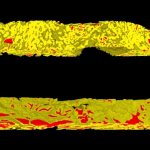
A team led by the University of Washington has developed a new, non-destructive method that images entire 3D biopsies instead of a slice. The 3D images provided more information than a 2D image — specifically, details about the tree-like structure of the glands throughout the tissue.
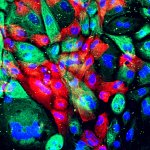
Researchers have found that regular blood tests can help detect whether prostate cancer patients have resistance to drugs treating the condition. The findings were presented at the National Cancer Research Institute (NCRI) virtual Festival.

Organised screening enabling early detection and treatment of prostate cancer can reduce death by an impressive 20%, based on 16 years of findings of over 160,000 men participating in the landmark European Randomised Study of Screening for Prostate Cancer (ERSPC).

For nuclear medicine specialists, 2021 may be heralded as a banner year validating the use of theranostic technology to treat cancer. Long-awaited results from the international phase 3 clinical VISION trial spark confidence in many experts.
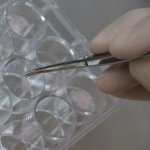
Research led by the Queensland University of Technology (QUT) on the interaction between prostate cancer cells and the tumour microenvironment has shed more light on the propensity of some types of prostate cancer to metastasize to bone more readily than other types.

Scientists have identified two subtypes of metastatic prostate cancer that respond differently to treatment.

The FDA authorized marketing of software to assist medical professionals who examine body tissues in the detection of areas that are suspicious for cancer as an adjunct to the review of digitally-scanned slide images from prostate biopsies.

Prostate cancer specialists from the Radiotherapy Department at Norfolk and Norwich University Hospitals Foundation Trust have become the first in the world to use an innovative technique to help patients receiving treatment for prostate cancer. Some patients receiving radiotherapy for prostate cancer will have their treatment split into two portions. The first stage of killing the cancerous…

Researchers at Karolinska Institutet recently reported that magnetic resonance imaging (MRI) could reduce overdiagnoses and thereby improve prostate cancer screening. Now, the same research group has published a study in The Lancet Oncology, which shows that the addition of a novel blood test, the Stockholm3 test, can reduce the number of MRIs performed by a third while further preventing the…

Final results from a study of a blood test that can detect more than 50 types of cancer have shown that it is accurate enough to be rolled out as a multi-cancer screening test among people at higher risk of the disease, including patients aged 50 years or older, without symptoms. In a paper published in the cancer journal Annals of Oncology, researchers report that the test accurately detected…

Researchers from the University of East Anglia have developed a new urine test for prostate cancer which also shows how aggressive the disease is.

Whole-body magnetic resonance imaging (WB-MRI) can detect prostate cancer and inform about treatment response and disease progression earlier and better than other imaging modalities. A Belgian expert will delve into the latest and future developments of the technique for prostate cancer and distant metastases imaging in a dedicated session at ECR. WB‐MRI and nuclear medicine -…
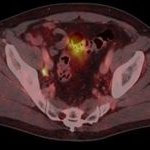
Hybrid PET/CT imaging can fully play to its strengths and steer treatment towards more effective procedures for diagnosing prostate cancer. The examination of the specific antigen PSMA with hybrid PET imaging enables treatment monitoring with significantly higher diagnostic accuracy than conventional imaging and therefore, Professor Clemens Cyran believes, will soon become the standard diagnostic…

Prostate cancer is one of the most common cancers among men. Patients are determined to have prostate cancer primarily based on PSA, a cancer factor in blood. However, as diagnostic accuracy is as low as 30%, a considerable number of patients undergo additional invasive biopsy and thus suffer from resultant side effects, such as bleeding and pain.

Our biological or circadian clock synchronizes all our bodily processes to the natural rhythms of light and dark. It’s no wonder then that disrupting the clock can wreak havoc on our body. In fact, studies have shown that when circadian rhythms are disturbed through sleep deprivation, jet lag, or shift work, there is an increased incidence of some cancers including prostate cancer, which is the…
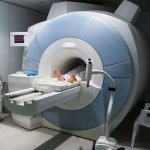
Researchers at the Center for Computational Imaging and Personalized Diagnostics (CCIPD) at Case Western Reserve University have preliminarily validated an artificial intelligence (AI) tool to predict how likely the disease is to recur following surgical treatment for prostate cancer. The tool, called RadClip, uses AI algorithms to examine a variety of data, from MRI scans to molecular…

Men die about five years earlier than women across the world. As initiatives to boost awareness of men’s health unfolded in November, an international project is bringing the forefront of AI research to tackle prostate cancer (PC), the second most frequent type of cancer in men and the third most lethal in Europe.